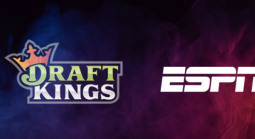Bwin.Party Potential Suitor Talks Reach Fever Pitch

LONDON - (Reuters) - Online gambling firm Bwin.party said talks about selling all or part of its business had become more serious, as it battles headwinds such as the decline of regulated poker markets in Europe.
Bwin, which was created by a merger of sports betting group bwin and online poker group PartyGaming in 2011, said in November it was considering a range of proposals from interested parties.
Canada's Amaya Gaming, which last year bought online gambling sites PokerStars and Full Tilt Poker, was one party named in media reports last year as being interested.
Bwin's chairman Philip Yea confirmed on Wednesday that the group was considering a number of indicative proposals.
"The board has entered into a further stage of discussions with each party with a view to assessing the relative attractions of these proposals," he told reporters.
Shares in Bwin, down 32 percent in the last 12 months, were trading up 2 percent at 80 pence at 1051 GMT.
Analyst Nick Batram at Peel Hunt said any major transaction was always likely to be complicated and take time to secure, adding that a full takeover was only one option.
The update on the talks came as Bwin posted a 6 percent drop last year in underlying earnings before interest, tax, depreciation and amortisation to 101.2 million euros, broadly in line with a consensus of analysts' forecasts of 99.65 million, but marking a third straight annual fall.
Revenue last year fell to 612 million euros from 652 million in 2013, which Chief Executive Norbert Teufelberger said reflected continued softness in the European poker market and a full year's impact from the Greek government's blocking of gambling websites.
He is focusing on providing gaming services to other businesses, improving its offer on mobile devices and cutting costs in search of growth.
The company said trading in the first eight weeks of 2015 had been broadly in line with its expectations.
Although betting volumes on sports and gaming, excluding poker, had risen, lower margins in sports betting and casino games meant that average daily net revenue was down 12 percent on a year ago, he said. (Reporting by Paul Sandle)













